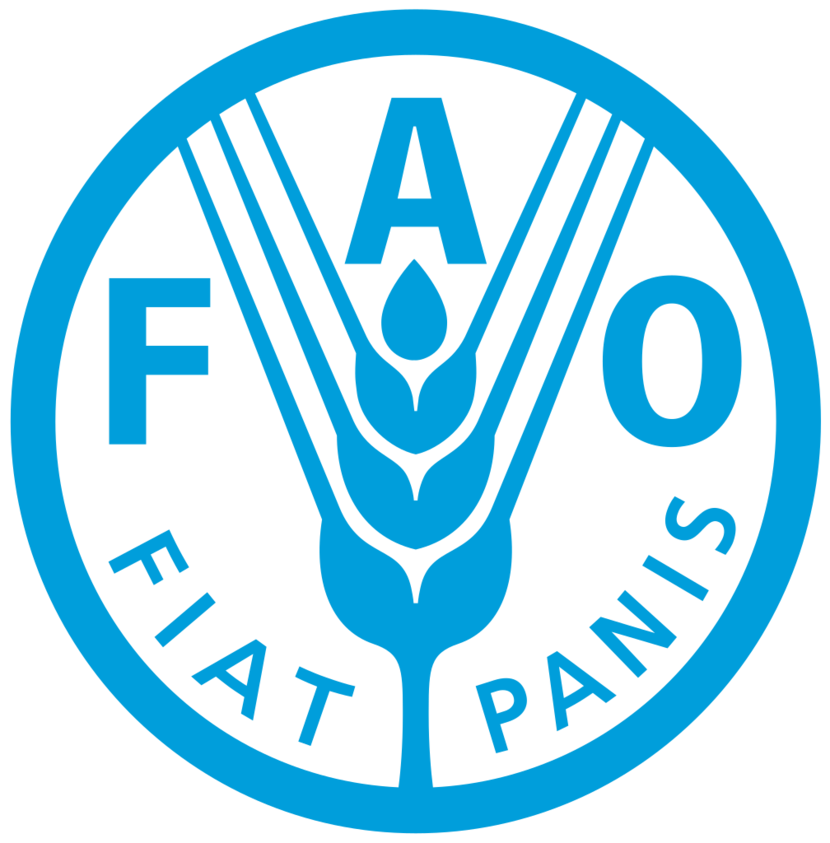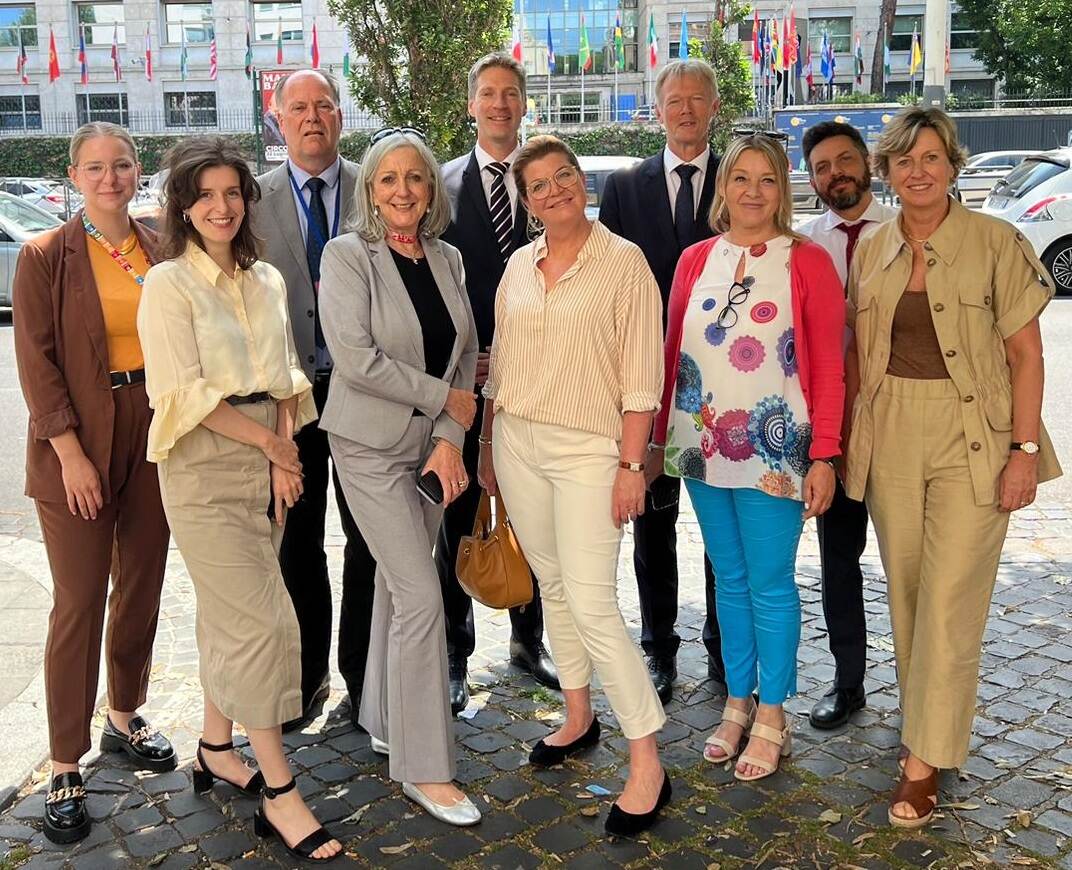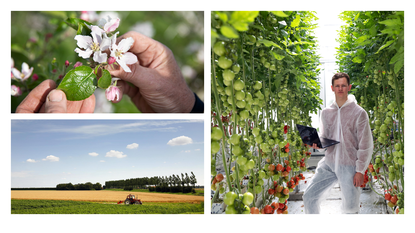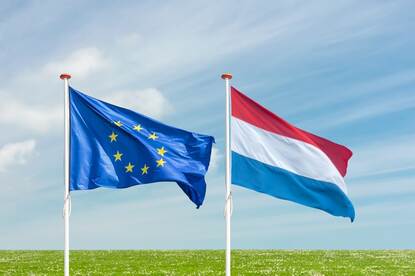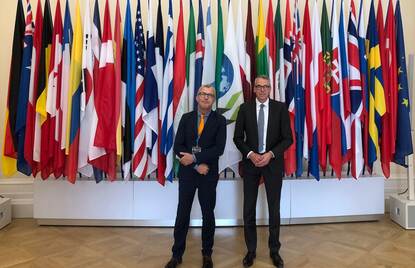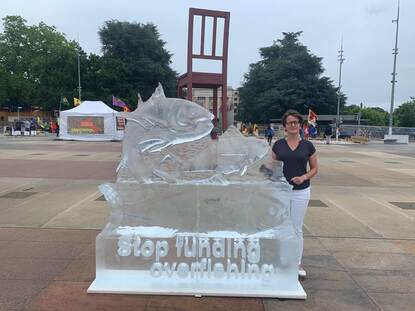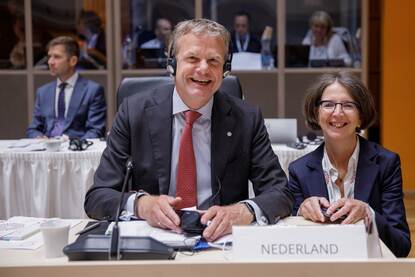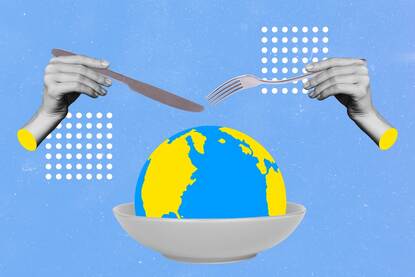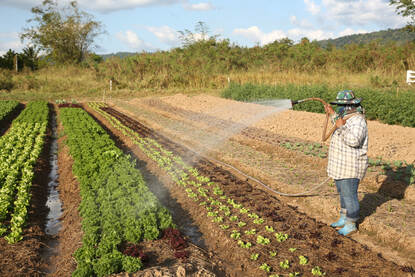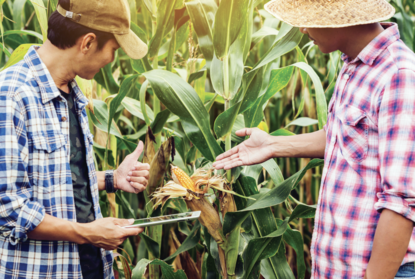Foto Minister for Nature and Nitrogen Policy Christianne van der Wal with the Permanent Representation of the Netherlands team in Rome
At the heart of global efforts to ensure food security lies the collaboration between member nations and the Rome-based United Nations agencies. One of them is the Food and Agriculture Organization (FAO), which embodies the international community's commitment to achieving Sustainable Development Goal 2: Zero Hunger. Central to these efforts is the Permanent Representation of the Netherlands. With an agenda that spans from agricultural productivity to environmental sustainability, the Permanent Representation uses its expertise and diplomatic skills to shape policies, create partnerships, and drive forward the agenda for a hunger-free world.
Most Member Countries of FAO have a Permanent Representation in Rome. Many relevant subjects are EU competences, so the team of the Permanent Representation makes sure to coordinate positions with the other EU members. With 195 members – 194 countries and the European Union– FAO works in over 130 countries worldwide. After being founded in Canada in 1945, FAO moved to Rome. Later, through the founding of The World Food Programme (WFP) and the International Fund for Agricultural Development (IFAD), Rome became the capital for all UN agencies that work on food systems. WFP is the second-largest organization in the UN system after the UN Secretariat, with more than 20,000 staff worldwide and over 80 country offices. It is primarily a humanitarian organization, but its mandate also includes working on resilience and development building on its humanitarian mandate. IFAD is both an International Financial Institution (IFI), and a specialized UN-Agency. IFAD invests in rural people, empowering them to increase their food security, improve the nutrition of their families and increase their incomes.
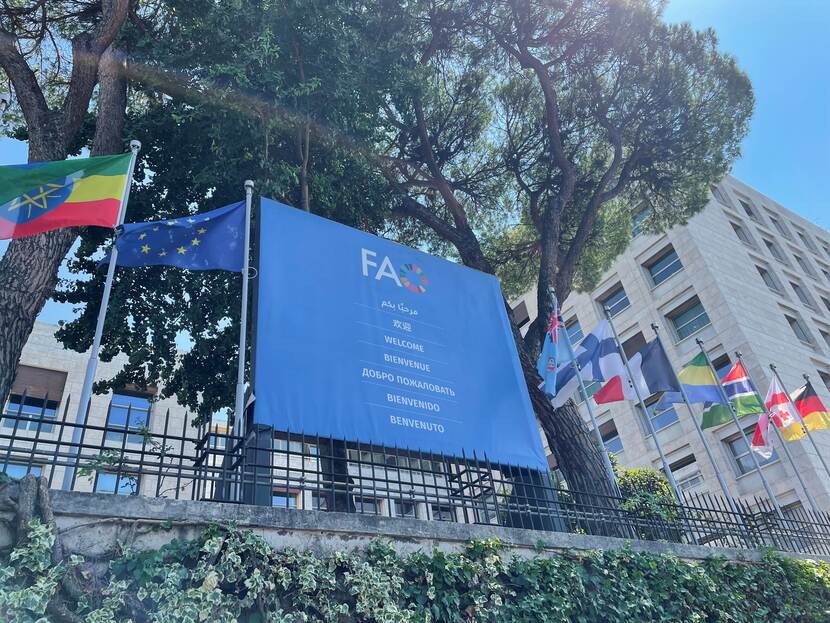
Primary focus: enough safe and healthy food in a sustainable way
In the next few years, eradicating world hunger, set out in Sustainable Development Goal 2, is a top priority for the Food and Agriculture Organization (FAO) of the United Nations in Rome. FAO’s goal is to achieve food security for all and make sure that people have regular access to enough high-quality food to lead active, healthy lives.
FAO is the main organization for norms and standards in the food system, but the organization does more than that. To name a few examples: it provides knowledge, helps with agricultural production in crisis situations, trains farmers through Farmer Field Schools, monitors the world’s forests and gives policy guidance to countries. All these things are aimed at making sure the world produces enough safe and healthy food, while producing within the ecological boundaries of our planet.
The world is not on track to reach these goals. Global hunger is still affecting around 9,2% of the world population, compared with 7.9% pre-Covid in 2019. It is projected that almost 600 million people will still be chronically undernourished by 2030. This is about 119 million more than in a scenario in which neither the pandemic nor the Russian invasion in Ukraine had happened. Conflicts, climate extremes and economic downturn are all responsible for these staggering numbers.
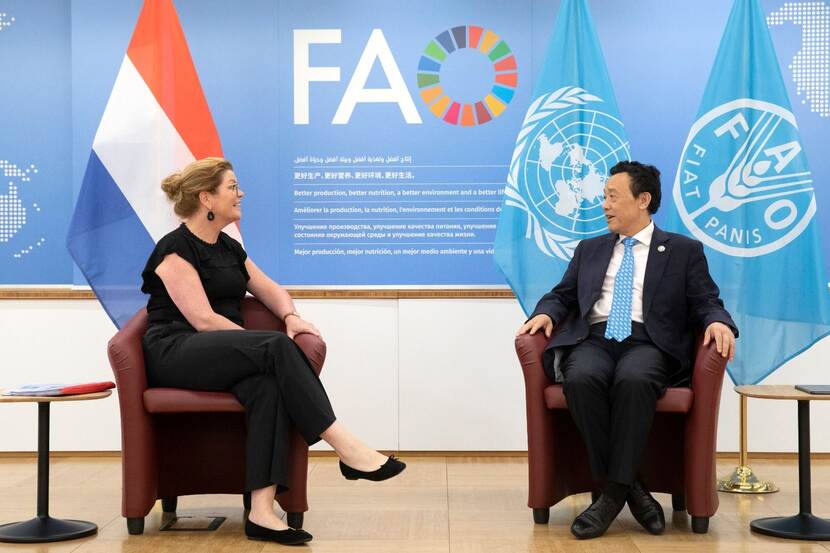
Working together with FAO
FAO is a member driven organization. The Netherlands, as a member of FAO, gives input on the strategic direction of the organization. We try to make sure the organization delivers on its mandate, without breaking other agreements like the Paris Agreement and the targets from the Global Biodiversity Framework.
The Netherlands plays a role at FAO as a knowledge partner, an active participant in negotiations and donor. As a donor to development projects of FAO, we try to help farmers all over the world with increasing production in a sustainable way. FAO works together with partners from the private sector and academia to achieve these goals, some Dutch partners are Wageningen University and DSM. But Dutch farmers and other players in the food industry also rely on the norms and standards set by FAO. The normative work on how to produce safe and healthy food provides us with a rules-based system for trade and helps with creating a level playing field.
The Netherlands works together with FAO in multiple ways:
- As a member we take part in official meetings of the governing bodies of FAO, where we oversee the budget and the strategic plan of FAO. Through these meetings, we try to influence FAO to work on issues the Netherlands finds important. Last year, ambassador Marcel Beukeboom was elected to be a member of the FAO Programme Committee.
- We work together with smaller coalitions of the willing on themes that are of importance to the Netherlands, such as the One Health Approach and biodiversity. These coalitions are less formal but can be a successful way of putting new issues on the FAO agenda.
- We also work with FAO more directly through projects that are funded by the Netherlands, such as the WaPOR project (for which both the funding and the technical support come from the Netherlands). But we also have projects in specific countries.
- FAO is used as a platform where all members exchange views on the future of our food system. Our current food system is so complex and intertwined, that no country can deal with it on its own. The only way we can make our food system work for people and planet, is by transforming it together with the rest of the world.
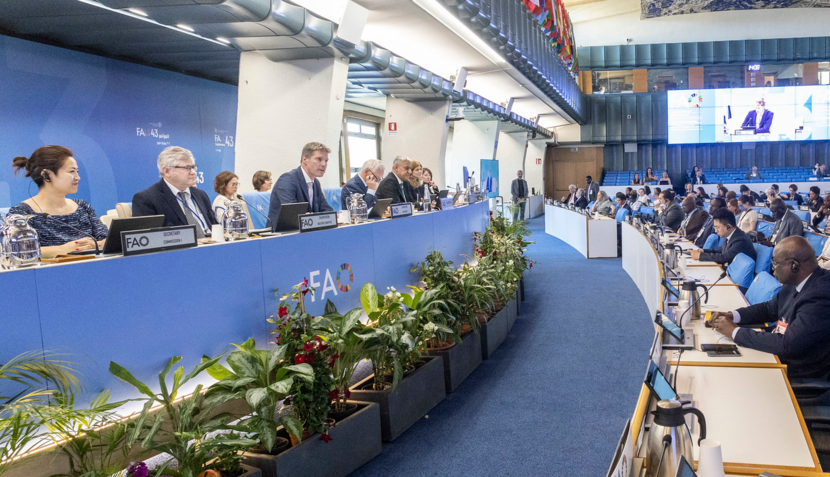
Working on strategic priorities for the Netherlands
The Permanent Representation of the Netherlands in Rome consists of a small team, including the ambassador, deputy ambassador, first secretary, an LNV-attaché and a three-person team of local support staff. The team is a mix of colleagues from the Ministry of Agriculture, Nature and Food Quality (LNV) and the Ministry of Foreign Affairs, because the work of the Rome-based agencies— FAO, International Fund for Agricultural Development (IFAD), and World Food Programme (WFP)— often takes place where food systems and development overlap. The ambassador represents the Netherlands in all three organizations. The LNV-attaché is focused on FAO and works on the subjects most relevant for the Ministry of LNV.
The team works on several strategic priorities for the Netherlands, such as:
- Working through a Food Systems Approach. To make a sustainable transformation we need to work together throughout the whole food system, from agriculture to health, and from trade to environmental impact.
- Mainstreaming the outcomes of the Climate COP’s, Biodiversity COP and the UN Water Conference into the work of FAO.
- Improving FAO’s innovation power. For instance, through improving their partnerships with private sector, research institutes and financial institutions.
The Permanent Representation works together with the Ministry of LNV on many technical subjects. Experts from the ministry represent the Netherlands in the committees for Forestry, Fisheries, Agriculture, Sustainable Livestock and Commodity Problems, the Codex Alimentarius (that decides on food safety standards). But FAO also asks for input on specific subjects on a more ad hoc basis, such as fighting Anti-Microbial Resistance or the use of plastics in agriculture. The Permanent Representation makes sure the Netherlands shares its knowledge, innovations and interests with FAO on any relevant topic and guards the coherence between the input on all themes
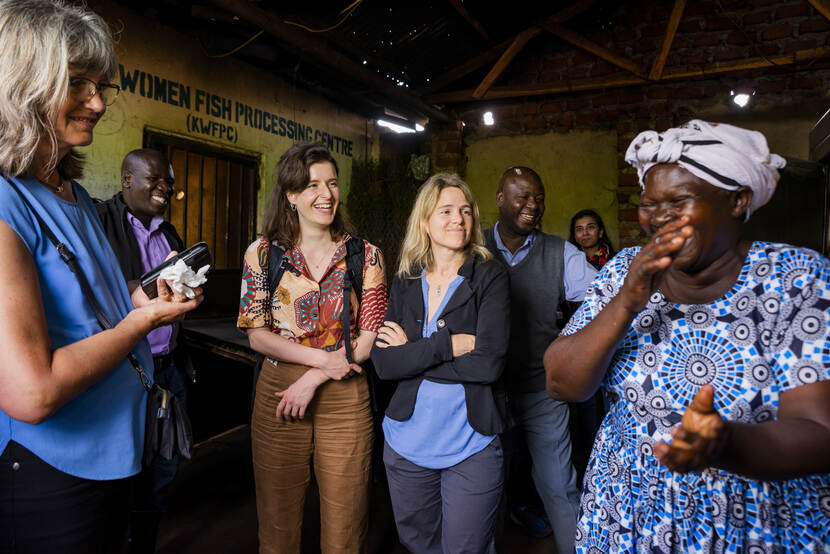
Read more
Contact
- Address: Permanent Representation of the Netherlands to the United Nations in Rome, Via Aventina, 32, 00153 Rome, Italy
- Email: ROF@minbuza.nl
- Phone: 0039065740306/2326
- LinkedIn: Permanente Vertegenwoordiging van Nederland bij de VN in Rome
- Website (in Dutch): Permanente Vertegenwoordiging van Nederland bij FAO, WFP en IFAD
- Website (in English): Permanent Representation of the Netherlands to the United Nations in Rome
